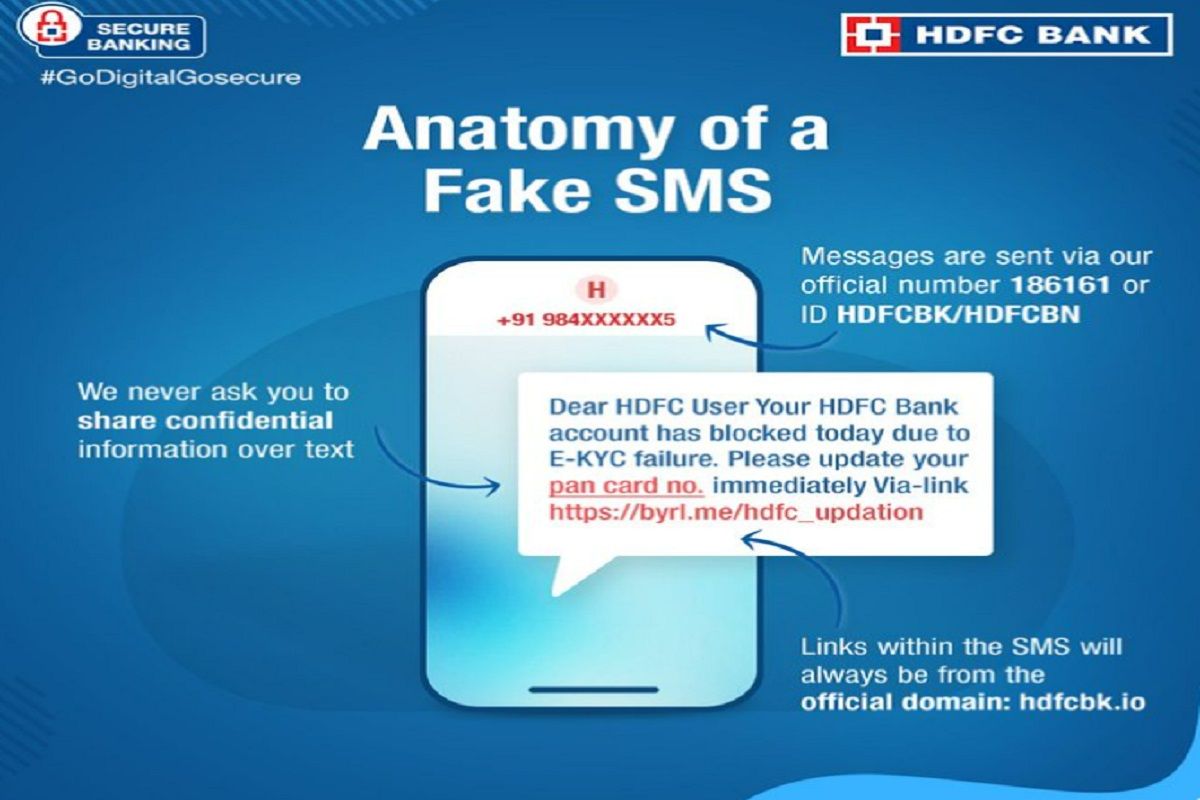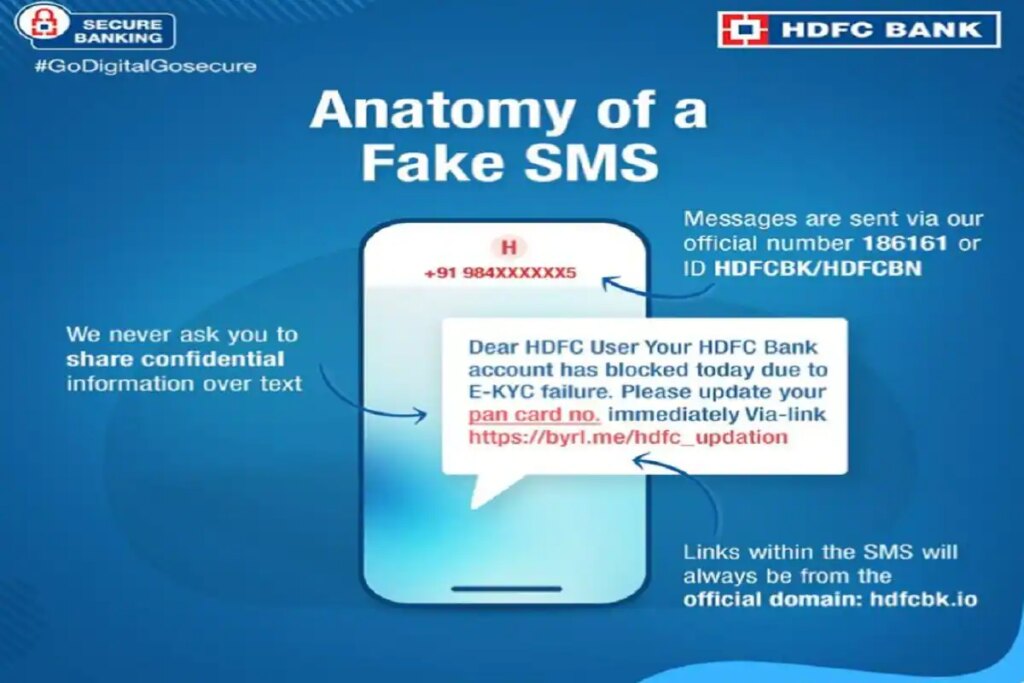[ad_1]

New Delhi: With a surge in utilization of digital modes of cost in recent times particularly in the course of the Covid-19-induced lockdowns, the variety of frauds reported in retail monetary transactions has additionally gone up. Thus to maintain its clients’ cash secure, HDFC has issued an alert cautioning clients to by no means click on on unknown hyperlinks which ask them to replace their PAN card particulars. “#GoDigitalGoSecure and by no means click on on unknown hyperlinks asking you to replace your PAN card particulars”, the financial institution tweeted.Additionally Learn – Good Information For Credit score Card Customers! RBI Permits Rupay Credit score Card Linking with UPI | All You Want To Know
#GoDigitalGoSecure and by no means click on on unknown hyperlinks asking you to replace your PAN card particulars.
Go to: https://t.co/UJ16AYZqG4#BankSafe #StaySafe #SecureBanking pic.twitter.com/eXn0LOoePN
— HDFC Financial institution (@HDFC_Bank) June 10, 2022
Additionally Learn – HDFC, PNB Clients Consideration: House Mortgage EMIs Go Up. Particulars Right here
That is termed as a phishing rip-off whereby fraudsters create a third get together phishing web site that seems to be a legit web site, comparable to a financial institution’s web site, an e-commerce web site, a search engine, and so on. Scammers ship hyperlinks to those web sites by way of SMS, social media, electronic mail, On the spot Messenger, and different channels. Many purchasers click on on the hyperlink with out first checking the detailed Uniform Useful resource Locator (URL) and enter safe credentials like Private Identification Quantity (PIN), One Time Password (OTP), Password, and so forth, that are tracked and utilized by fraudsters. Additionally Learn – Financial institution Vacation Immediately On Account of Buddha Purnima. Test States The place Banks Will Be Closed
Page Contents
Precautions In opposition to Phishing Assaults
- Don’t click on on unknown, unverified hyperlinks and instantly delete such SMS, emails despatched by unknown senders to keep away from accessing them by mistake in future.
- Unsubscribe the emails offering hyperlinks to a financial institution, e-commerce, or search engine web site and block the sender’s e-mail ID, earlier than deleting such emails.
- All the time go to the official web site of your financial institution, or service supplier. Rigorously confirm the web site particulars, particularly the place it requires getting into monetary credentials.
- Test for the safe signal (https with a padlock image) on the web site earlier than getting into safe credentials.
- Test URLs and domains obtained in emails for spelling errors. In case of suspicion, inform.
$(document).ready(function(){ $('#commentbtn').on("click",function(){ (function(d, s, id) { var js, fjs = d.getElementsByTagName(s)[0]; if (d.getElementById(id)) return; js = d.createElement(s); js.id = id; js.src = "//connect.facebook.net/en_US/all.js#xfbml=1&appId=178196885542208"; fjs.parentNode.insertBefore(js, fjs); }(document, 'script', 'facebook-jssdk'));
$(".cmntbox").toggle();
});
});
[ad_2]
Source link
